“September 21, 1945 – That was the night I died”
When a movie starts with such an opening line, you immediately get to know that it is one of tragedy. I have watched a lot of movies, have shed a few tears while watching some of them. Yet, this movie would certainly be amongst the most tragic and depressing films (animated or not) that I’ve come across till date. I was warned beforehand that it would drain me emotionally. Being an empath, I restrained myself from watching it for a long time. Then again this being a Ghibli film, I was equally curious to watch it. Finally eagerness overcame restraint and I gave in to it. At first I only needed the back of my hand to wipe away the tears, and then I had to use my shirt sleeves, and then my shirt hemline even. Yet, nothing was sufficient enough to stop the tears draining from my eyes or my nose running like a faucet. I was literally sobbing for hours. It left me so wounded and heavy hearted that I couldn’t hold a normal conversation with anyone for a few days. Usually, before writing about a movie I try to watch it again to get the feel of it afresh. This time though I simply couldn’t do it. I just couldn’t muster up the courage to watch it another time. Yes, it is a truly harrowing tale.
Grave of the Fireflies (Hotaru no haka) is a 1988 japanese animated film directed by Isao Takahata under Studio Ghibli productions. It is based on a novel of the same name by Akiyuki Nosaka. This is a story of two siblings in Japan – Seita and Setsuko – their misfortunes and hardships towards the end of World War II.
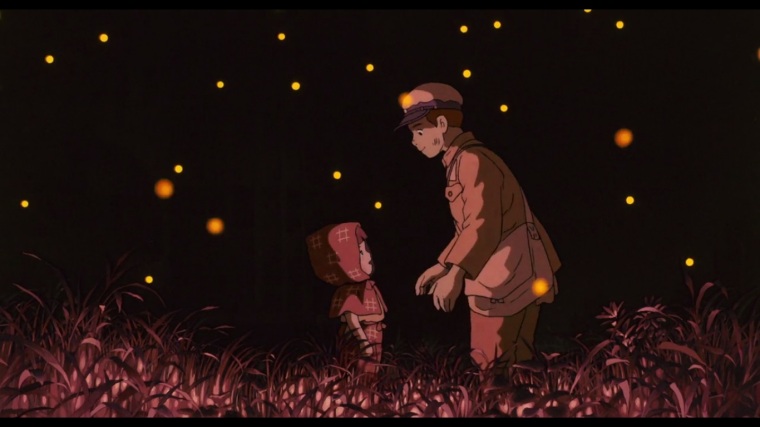
The sibling’s mother gets killed in an air raid while their father is off fighting in the war. The kids are taken in by their aunt, who is nice to them initially. Soon after discovering that their mother is no more, she begins to think of them as a burden and mistreats them. She takes their food rations and cooks good food for her own family while giving just porridge for the siblings. A proud little Seita decides to leave their home and begins to take care of his sister all alone. Initially by selling their belongings, they are able to afford good food. As time progresses lack of money makes him resort to eating frogs, soy beans, etc. At one point, Seita goes a step further and starts stealing things for sustenance, until one day when he gets caught by a farmer and is left beaten up bad. All the while little Setsuko’s health is on a downward spiral!
Let me tell you right off the bat that both the lead characters lose the battle. Yes, they die. This is hardly a spoiler, because just 1 minute into the movie and you are shown what awaits you in the end. Then what’s the point of watching it? The journey that leads to that inevitable outcome is what makes it worthwhile. It shows that even the simplest of storylines can leave us shattered with a profound sense of agony, when it is done right. The instances of grief are well balanced with the beauty of childhood innocence. What we see as a result is sheer poetry!
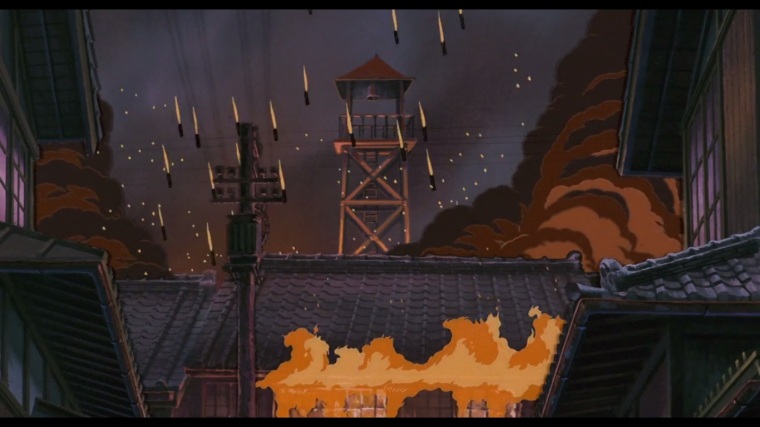
Not many animated movies show the adversities of war so vividly, especially one that is faced by such young leads. This film does it, and beautifully so. It is brutally honest and real. I mean, how often do you see a maggot-infested, burnt and bandaged body of the mother being dragged in front of her young son, being depicted in a movie? That said, the cruelty of war isn’t portrayed with blood and gore like you see in most war dramas. It rather uses magnificent landscapes and some soul stirring music to support a phenomenal screenplay.
What makes it to stand out as probably the best war movie, are three things. First, is the point of view. Instead of a soldier narrating his experiences, we have a young boy recounting his last few days with his sister. Roughly along the lines of ‘The Boy in the Striped Pajamas’ and ‘Empire of the Sun’.
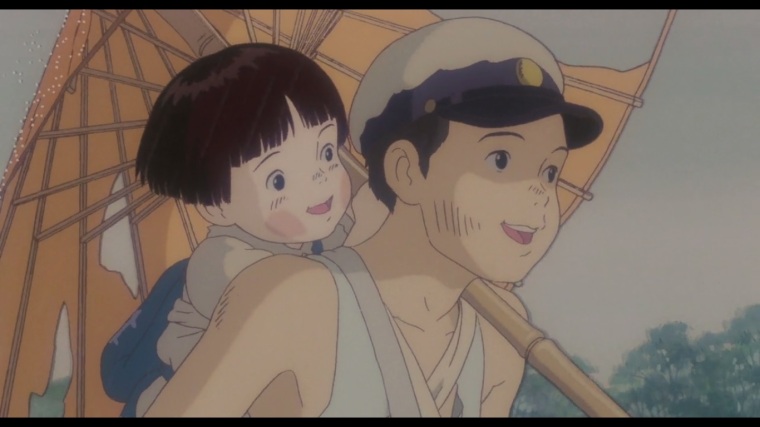
Second, is the lead characters’ portrayal. You don’t have kids who are unusually smart for their age, trying to be heroic or anything. The elder brother, Seita, seems to be in his early teens. He is lazy, gets annoyed, too proud, quite stubborn, loves his sister dearly, tries to act strong, doesn’t listen to advices, just like a random 14 year old. The younger sister, Setsuko, is around 5 years old. She gets excited by the tiniest of things her brother does for her, constantly asks for her mother, throws tantrums, wants to be pampered with love and good food, so much like a next door kid. That is probably why we connect with them so well, and grieve deeply over their loss.
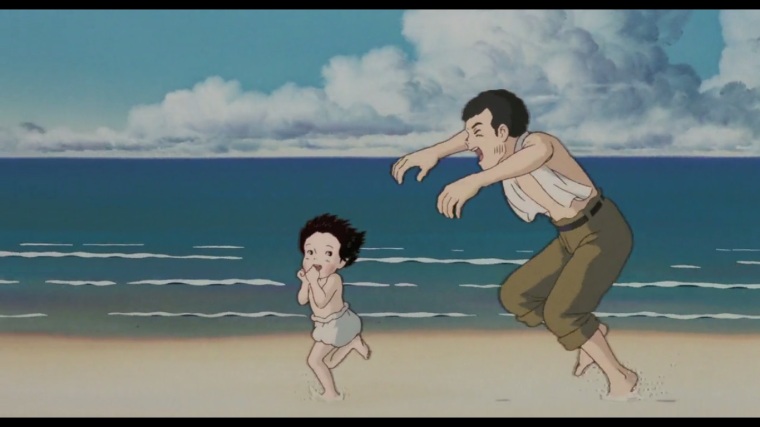
Third, is the pacing of the film. Nothing is too rushed or delayed. In fact the occasional pausing is where it strikes you the most. It lets you drink in the scene and relish it completely.
Like I’d mentioned before, it isn’t entirely sad from frame to frame either. There are some precious moments to behold too. The love you see between the siblings is so pure, relatable and adorable. The most poetic scenes though, are the ones with the fireflies. Whereas in one frame they bring in so much joy and comfort, in another frame they leave a trail of misery when Setsuko reveals her knowledge of their mother’s death.
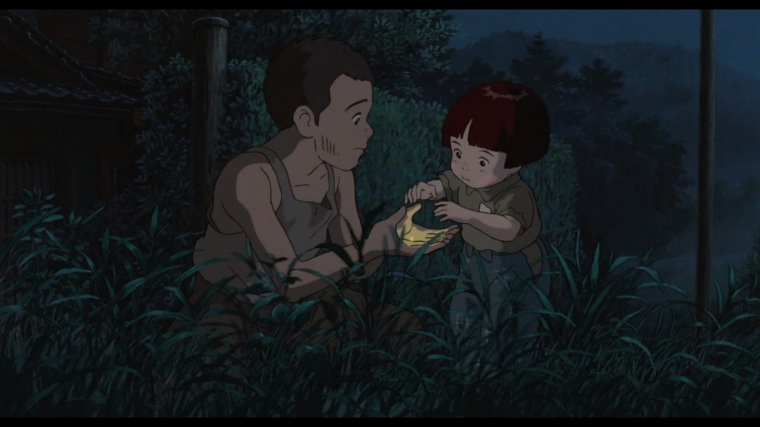
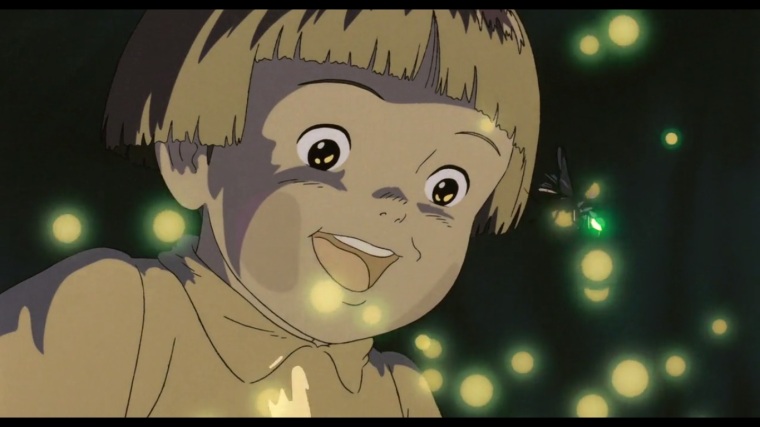
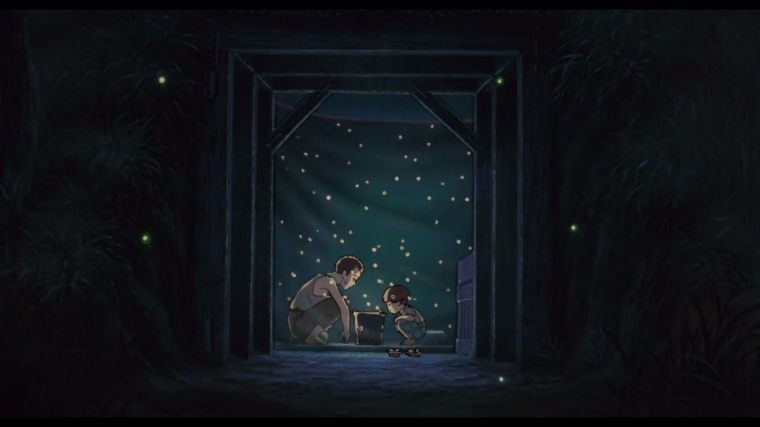
Gosh, it has such overpowering music that it haunts me even now. It adds another layer of enchantment to the whole movie. Mesmerizing yet depressing!
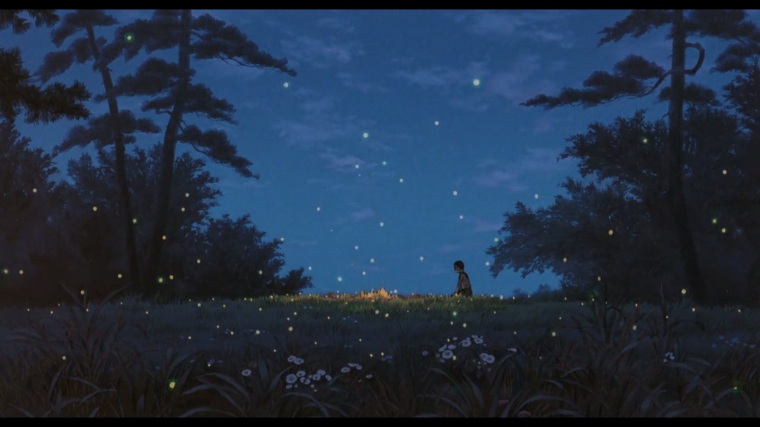
Also, I’ve noticed that there are some people who criticize the movie heavily because of Seita’s character. These critics claim that a real life character wouldn’t behave that way, and hence there is no real development seen in the story. What they don’t understand is that art is supposed to be seen from the creator’s perspective. Where most people fail is when they try to imbibe their ideas and ideals into a movie, and cry foul when it doesn’t play out well. That’s entirely wrong.
Here, the plot is based on real events from the life of Akiyuki Nosaka. His sister died because of him, and it was his survivor’s guilt which pushed him to pen down this story. He consciously made Seita that way, so that he ultimately causes both of their demise. Yes, Seita could’ve found a job, or apologized to the mean relative for his sister’s sake, or withdrawn the money earlier. Any of it might’ve saved them. That said, I would’ve probably done what Seita did. Ask me to choose between ‘working for my country’ and ‘stay idle and play with my sister who’s lost her loving mother’, darn right I’ll choose the latter. Seita was simply being a lazy carefree teen, and his mistake made him pay a heavy price. You know what? Seita could still have gone ahead and lived. Yet, he chose to keep his promise to his sister, that he’ll always be with her. He simply gave up on life itself, because he saw no meaning in it after being robbed of his only love, Setsuko. Now, that is just pure rhapsody, if you asked me!
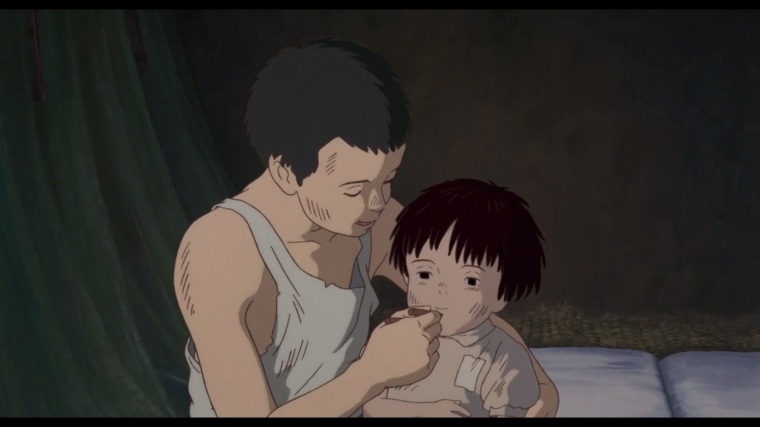
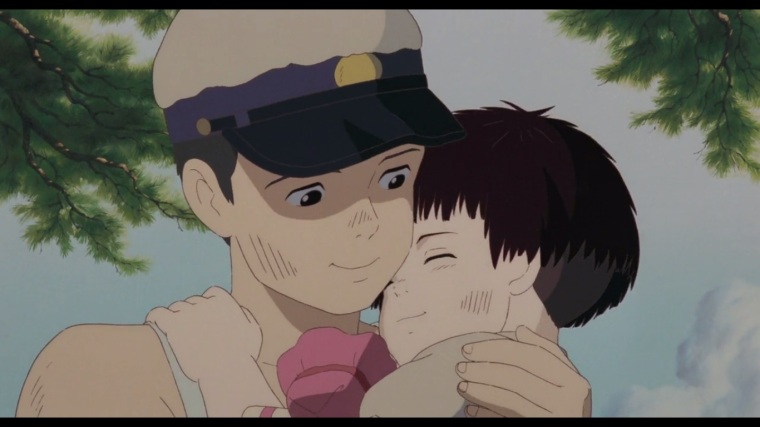
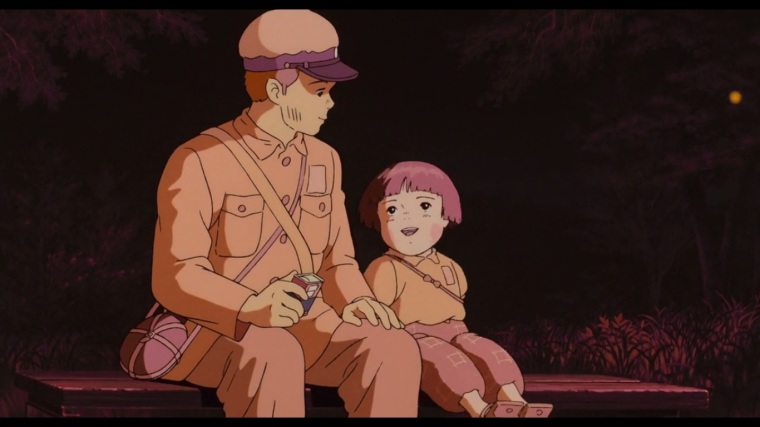
I think this movie is pretty underrated. It deserves a lot more attention and accolades. It’s a must watch film, preferably in Japanese since I loved the voice actors in the original more. Just ensure you have the heart to withstand it and a box of tissues nearby. It makes you think about how and whom the war really affects, just because few great minds wanted to fight for power. War still rages on in this planet for a variety of reasons. For all we know, there might be another Seita and Setsuko among them, hoping for a miracle to save them! If only we realize the fragility of our lives, the world would turn into a peaceful paradise.

